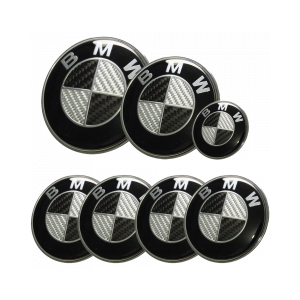automotive shaft seals
Automotive Shaft Seals Essential Components for Engine Performance
Automotive shaft seals, often referred to as oil seals or radial lip seals, are critical components in a vehicle's engine and drivetrain systems. They play an essential role in preventing the leakage of lubricants and other fluids, thus ensuring the efficient operation of the vehicle’s engine, transmission, and other essential systems. Despite their relatively small size, these seals are pivotal in maintaining the vehicle’s performance and longevity.
Understanding Automotive Shaft Seals
Shaft seals are designed to fit around rotating shafts, maintaining a barrier that prevents fluids from escaping and contaminants from entering. They are typically round and have a flexible lip that makes contact with the shaft. This contact ensures a tight seal, allowing the seal to accommodate slight imperfections or movements in the shaft.
In automotive applications, there are several types of shaft seals, each designed for specific functions and environments. Common examples include oil seals, which prevent engine oil from leaking around crankshafts and camshafts, and transmission seals, which help keep transmission fluid contained within the transmission casing.
Importance of Automotive Shaft Seals
1. Fluid Retention One of the primary functions of automotive shaft seals is to retain lubricants and prevent leaks. Whether it’s engine oil, transmission fluid, or differential oil, effective sealing is essential to maintain proper fluid levels and pressure, which is crucial for optimal engine performance.
2. Contamination Prevention Automotive environments are rife with dust, dirt, and debris. Shaft seals act as barriers against these contaminants, preventing them from entering sensitive areas of the vehicle. This contamination control is vital to avoid wear and tear on internal components, which could lead to costly repairs or premature failure.
3. Efficiency and Longevity By preventing fluid leaks and contamination, shaft seals contribute significantly to the efficiency and longevity of various automotive systems. Reduced fluid loss means that engines and transmissions operate under optimal lubrication conditions, which in turn enhances performance and extends the lifespan of the vehicle.
automotive shaft seals

4. Environmental Considerations In addition to mechanical and economic benefits, effective shaft seals also provide environmental protection. By preventing leaks of oils and other fluids, they help reduce the risk of environmental contamination, aligning with increasingly stringent regulations regarding automotive emissions and fluid disposal.
Choosing the Right Shaft Seal
When selecting shaft seals for automotive applications, several factors must be considered, including the type of fluid being sealed, the temperature range the seal will be exposed to, and the rotational speed of the shaft. Additionally, compatibility with the surrounding materials is crucial to avoid degradation over time.
Many modern vehicles utilize advanced materials in their shaft seals, such as fluorocarbon elastomers or thermoplastic polyurethane, which offer enhanced resistance to heat and chemicals compared to traditional rubber seals. This advancement has led to improved performance and reliability in modern automotive design.
Maintenance and Replacement
Although shaft seals are designed to be durable, they can wear out over time due to friction, exposure to extreme temperatures, and the effects of the fluids they contain. Signs of a failing shaft seal include visible leaks around the seal, decreased fluid levels, or unusual noises from the engine or drivetrain area.
Regular maintenance checks can help detect potential issues early. Vehicle owners should ensure that seals are inspected during routine oil changes or service intervals. If a seal is found to be compromised, timely replacement is crucial to avoid more significant mechanical issues.
Conclusion
Automotive shaft seals may seem like minor components, but their impact on vehicle performance, efficiency, and longevity is substantial. By effectively retaining lubricants and preventing contaminants from entering sensitive systems, they ensure that engines and transmissions function optimally. With advancements in materials and design, modern shaft seals continue to evolve, supporting the growing demands of today's automotive industry and enhancing vehicle performance and reliability. Understanding the importance of these seals can help vehicle owners appreciate their role in maintaining their automobiles and preventing expensive repairs in the future.
-
Understanding the Front Main Engine Seal: Purpose, Maintenance, and Installation
News Jul.29,2025
-
Understanding O-Rings and Seal Rings: Types, Applications, and Custom Solutions
News Jul.29,2025
-
Understanding Crankshaft Oil Seals: Rear Seals, Pulley Seals, and Their Role in Engine Integrity
News Jul.29,2025
-
The Importance of Front and Rear Crankshaft Seals in Engine Performance and Oil Management
News Jul.29,2025
-
Crank Oil Seals: Functions, Types, and Cost Considerations in Engine Maintenance
News Jul.29,2025
-
A Comprehensive Guide to O-Rings and Seals: Types, Materials, and Global Applications
News Jul.29,2025
-
Mastering Diesel and Performance Engine Maintenance: A Guide to Critical Oil Gaskets
News Jul.28,2025
Products categories















